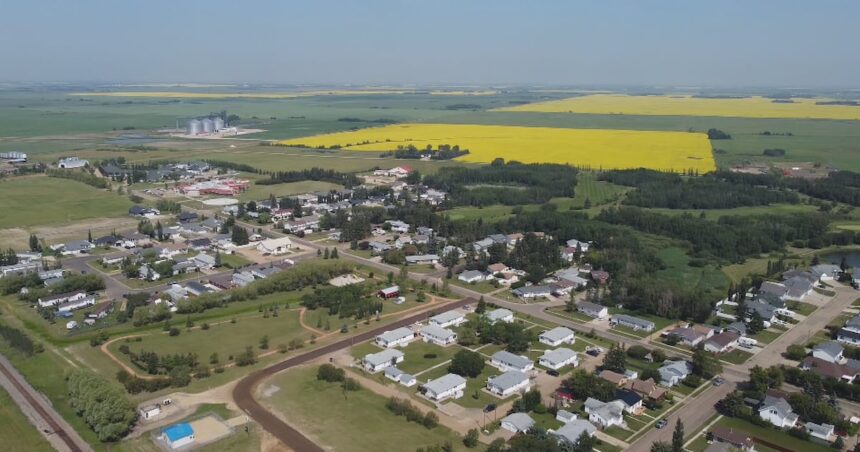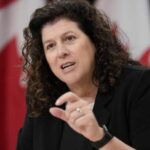The sleepy summer campaign trail in Alberta’s Foothills-Lethbridge riding has suddenly awakened with unexpected energy. What was presumed to be a comfortable Conservative hold has transformed into a testing ground for democratic resilience as three independent candidates mount serious challenges against Pierre Poilievre’s party machine.
“People here are tired of being taken for granted,” says Marilyn North Peigan, a Blackfoot community advocate and one of the independents gaining traction. “This riding has voted Conservative for generations, but I’m hearing at doors that voters want someone who puts community above party loyalty.”
The July 29th byelection, triggered when longtime MP John Barlow stepped down to pursue private sector opportunities, was initially viewed as routine Conservative territory. The riding has elected right-leaning representatives continuously since 1972. But the political landscape has shifted dramatically in recent weeks.
Sarah Woodgate, a local business owner and another independent candidate, tells me during a campaign stop at Henderson Lake that she’s sensing genuine openness to change. “Voters keep saying they feel forgotten by Ottawa. They want representation that begins here at home, not policies dictated from party headquarters.”
The byelection represents more than just filling a vacant seat. It’s emerging as a litmus test for Poilievre’s leadership and the Conservative brand in their Alberta heartland. Recent polling from Abacus Data suggests the Conservative lead has narrowed to just 9 points over the combined independent vote—a shocking development in a region where 20-30 point margins are customary.
Conservative candidate Tanya Fir, a former provincial minister, has relied heavily on Poilievre’s presence during campaign events. “We’re focused on our positive message of making Alberta stronger within Canada,” Fir stated at a recent rally. When pressed about the independent surge, her campaign declined further comment.
What makes this contest particularly noteworthy is the localized nature of voter concerns. In conversations across the riding, from Lethbridge coffee shops to ranches in the western foothills, residents repeatedly mention water security, agricultural sustainability, and healthcare access—issues they feel have been subordinated to national partisan battles.
“My family has farmed here for three generations,” explains Joseph Mercer, an undecided voter I met outside a Claresholm hardware store. “But it feels like our MPs spend more time fighting culture wars than securing our water rights or helping with crop insurance improvements.”
This sentiment appears widespread. According to Elections Canada, independent candidacies have increased 47% nationwide since 2019, with Alberta seeing the steepest rise. Political scientist Dr. Melanee Thomas from the University of Calgary attributes this trend to dissatisfaction with party politics.
“What we’re witnessing is voters increasingly questioning whether party affiliation actually delivers results for their communities,” Thomas explains. “In ridings with strong regional identities like Foothills-Lethbridge, there’s growing skepticism about whether national parties truly understand local priorities.”
The third independent candidate, former municipal councillor Richard Blakeley, has centered his campaign on agricultural concerns. At a town hall in Pincher Creek attended by nearly 200 residents, Blakeley addressed the crowd with characteristic bluntness.
“Ottawa doesn’t get southern Alberta, and frankly, it doesn’t try to,” he said to nods of agreement. “We need someone who wakes up thinking about irrigation infrastructure and rural healthcare, not someone focused on scoring points in Question Period.”
The Conservative Party has responded by dispatching heavy hitters. Poilievre himself has visited twice, while Alberta Premier Danielle Smith has appeared at three campaign events—unusual attention for what should be a safe seat.
The Liberal and NDP candidates, while on the ballot, have struggled to gain traction, polling at just 12% and 9% respectively according to the latest Mainstreet Research survey. This has effectively transformed the race into a referendum on whether Conservative dominance can be challenged by community-focused independents.
The financial disadvantage facing independents remains substantial. Elections Canada filings show the Conservative campaign has raised over $340,000, while the three independents combined have barely reached $90,000. Yet their ground game has been impressive, with volunteer numbers actually exceeding the Conservative operation.
“It’s not about money,” Woodgate insists. “It’s about conversations. I’ve personally knocked on over 3,000 doors. People appreciate seeing their candidate rather than a party volunteer reading from a script.”
For Poilievre, who has invested considerable political capital in portraying his leadership as resonating with everyday Canadians, a close result—let alone a defeat—would undermine his narrative of growing momentum heading toward the next general election.
As election day approaches, the airwaves have filled with increasingly pointed messaging. Conservative ads emphasize the risk of “wasted votes” and “giving Trudeau an advantage,” while independent campaigns focus on community autonomy and local representation.
The outcome remains uncertain, but what’s already clear is that the political conversation has shifted. In a province long considered Conservative bedrock, voters are asking fundamental questions about representation and democratic accountability.
As North Peigan puts it: “Win or lose, we’ve already succeeded in one important way—people here are talking about what they actually want from their MP, not just voting out of habit or partisan loyalty.”
In a political era often defined by national narratives and partisan divisions, the Foothills-Lethbridge byelection offers something different: a reminder that democracy sometimes works best when it begins at home.






